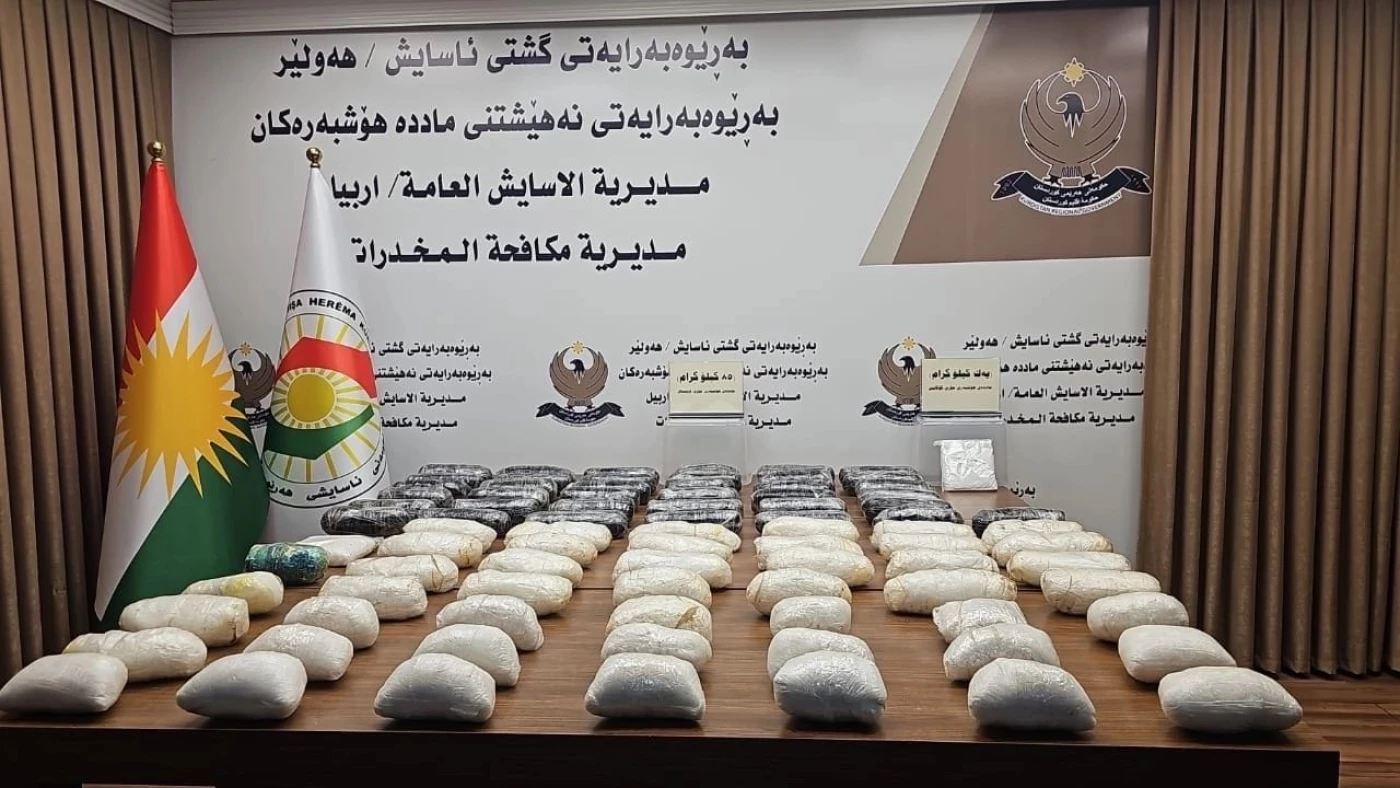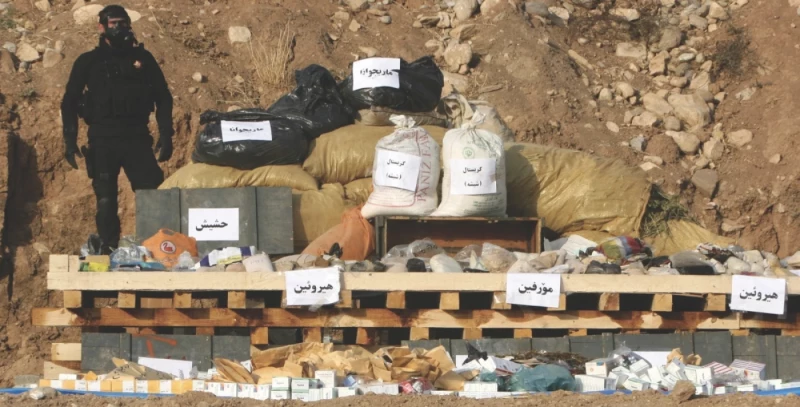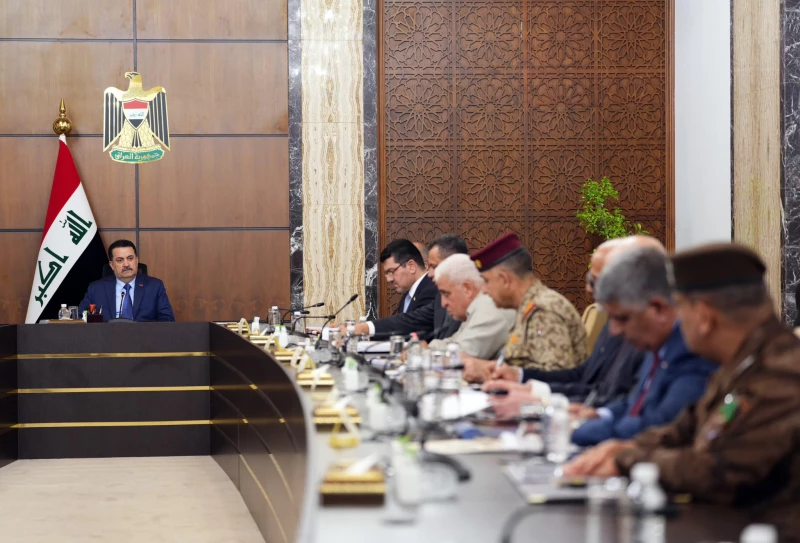ERBIL, Kurdistan Region of Iraq - Local security forces in Erbil on Sunday announced the arrest of three “dangerous” drug traffickers, the seizure of 85 kilograms of crystal meth, as well as a depot.
“As part of continued efforts to combat and eradicate drugs, our directorate… managed to arrest a dangerous network of drug dealers consisting of three suspects, following a week-long process during which we gathered precise information on them,” read a statement from the the General Directorate of Anti-Narcotics.
The statement added that as part of the operation, they also managed to confiscate “85 kilograms of crystal meth.”
“As part of the investigation, it turned out that the trafficking network had a depot at one of the outlying Erbil city’s farms,” the statement said, detailing that “they had been smuggling in the drugs to Erbil from Qaladze town and from there they would distribute them to the cities of Erbil and Duhok.
“This network is considered one of the most dangerous. In their confessions, it turned out that they would distribute at least 100 kilograms of this to Erbil and Duhok on a monthly basis."
According to data obtained by The New Region, as of June, there were 1,381 people charged with drug use or trade in Erbil’s prisons.
A delegation from the American Sterling Charity Foundation met with Erbil’s governor Omed Khoshnaw in June to discuss the opening of a rehabilitation center in the province.
The initiative came while another rehabilitation center is at the last stages of completion in the province’s Shaqlawa district, and two more centers are also being established in Sulaimani and Duhok provinces.
Following the 2003 US invasion, Iraq has seen tremendous increase in drug trafficking and use, despite continuous attempts to combat the phenomena.
In late May, the Iraqi government announced that they had seized 2.5 million Captagon pills in the provinces of Najaf and Anbar.
In a 2022 report, the Washington Institute said that prior to the fall of Saddam Hussein, Iraq served merely as a transit route for drugs produced in Iran and Pakistan, but following the war, Iraq has developed into a manufacturer of drugs as well.
Iraqi politicians have previously warned against the rapid increase of drugs in the country.
Despite consecutive government cabinet’s pledging to fight the drug phenomena in the country and Prime Minister Mohammed Shia’ al-Sudani having ordered the establishment of rehabilitation centers across all Iraqi provinces, the country’s infrastructure is still too weak to combat the rapid increase in drug use.
Article 27 of the Iraqi Narcotics and Psychotropic Substances Law dictates that any suspect charged with exporting, importing, producing, or planting narcotic substances is subject to either a death penalty or life sentence, leaving no room for redemption.
Prison cells across the country are often seen overcrowded with people. Both drug dealers and users are inseparably squeezed into cells together, with few rehab centers available. This has in turn increased cases of relapse even after one has served prison time.


 Facebook
Facebook
 LinkedIn
LinkedIn
 Telegram
Telegram
 X
X



